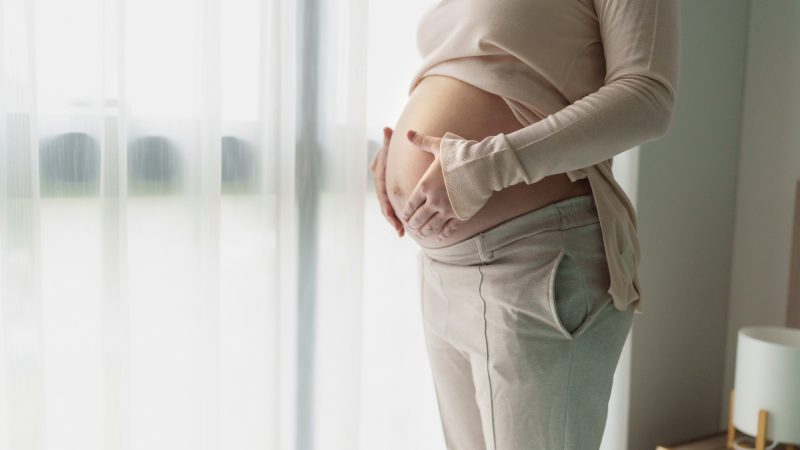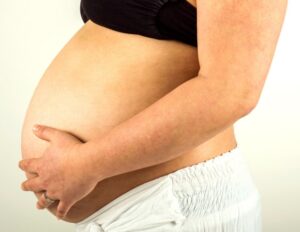High sugary beverage consumption during pregnancy linked to increased health risks

In a recent study published in Nutrients, researchers evaluated the consumption habits of several beverages among pregnant women in Shanghai and the health effects on mothers and their offspring.
Study: Association of Beverage Consumption during Pregnancy with Adverse Maternal and Offspring Outcomes. Image Credit: mojo cp/Shutterstock.com
Background
The surge in consumption of sugar-sweetened beverages (SSB) and non-sugar-sweetened ones (NSS) has prompted health concerns, especially among pregnant females and their children.
Excess SSB consumption can cause dental problems, weight gain, and an increased risk of chronic illnesses such as diabetes and hypertension.
Pregnant women who consume a lot of sugary drinks are more likely to develop gestational diabetes mellitus (GDM), preeclampsia, and long-term negative consequences on the fetus, such as early birth and birth abnormalities.
Regulating SSB intake during pregnancy is critical for the safety of mothers and babies. Previous studies assessed packaged SSBs, with limited information on freshly prepared and non-sugar-sweetened drinks.
About the study
In the present prospective cohort study, researchers investigated whether excessive beverage intake among pregnant females is related to an increased risk of adverse mother-and-child outcomes.
The researchers conducted surveys in April-June 2022 and 2023, selecting individuals from 16 Shanghai districts by multi-stage random sampling. Eligible individuals were cognitively unimpaired pregnant females residing in community settings beyond six months in the previous year and could walk independently.
The researchers categorized each Shanghai district into five zonal regions, randomly selecting two towns per zone and 30 females through different stages of pregnancy per town. They ascertained the pregnancy period following the American College of Obstetricians and Gynecologists (ACOG) guidelines.
They performed in-person interviews and distributed survey questionnaires concerning demographics, including age, educational attainment, employment status, marital status, household income, pre-pregnancy alcohol intake, nutritional supplement use, and beverage intake frequency.
Participants recorded their beverage intake frequency for each type of beverage during the previous month, with options ranging from never, one to three times per month, one to three times per week, four to seven times per week, and more than once per day.
The researchers classified beverages as pure fruit juices (PFJ), carbonated beverages (CB), vegetable protein-type beverages (VPB), juice beverages (JB), sugar-sweetened dairy beverages (SDB), sugar-sweetened tea, including freshly prepared milk-based tea (STB), lactic acid bacteria beverages (LBB), and NSS.
The total beverage (TB) intake included PFJ, CB, VPB, JB, LBB, SDB, NSS, and STB, whereas SSB included other beverage types except NSS.
They collected follow-up information on neonatal births within 12 months of the survey. All pregnant females had given birth by March 31, 2024. They performed logistic regressions to determine the odds ratios (OR) for analysis.
Results and discussion
The study included 4,824 pregnant women, 82% aged below 35 years, from 160 towns, among whom the TB, SSB, and NSS intake rates were 73%, 73%, and 14%, respectively, corresponding to median volumes of 67 mL, 65 mL, and 17 mL.
SSB were the predominant type, contributing to 94% of the TB consumption. Among SSBs, the most consumed fluids were SDB (25%), PFJ (19%), and STB (13%). GDM incidence rates were 17% and 5.0%, respectively.
Compared to non-TB consumers, those drinking TB up to three times weekly showed elevated risks of gestational diabetes mellitus by 38% (OR, 1.4) and gestational hypertension (GH) by 64% (OR, 1.6).
Pregnant women drinking TB at least four times weekly showed 154% higher GDM (OR, 2.5) and 169% higher GH risks (OR, 2.7). SSB analysis yielded similar results.
Concerning neonatal health outcomes, TB intake at least four times weekly was related to significantly increased macrosomia (odds ratio, 2.1) and large-for-gestational-age (LGA) (odds ratio, 1.7) risks compared to non-consumers. The team noted significantly higher macrosomia (OR, 6.6) and LGA (odds ratio, 7.6) risks in NSS analysis.
Sugary beverages can raise blood glucose levels and cause insulin resistance, increasing the risk of gestational diabetes and hypertension. Pregnancy can also raise maternal blood glucose levels, causing fetal insulin production and macrosomia.
NSS may affect the gut flora and metabolic processes, potentially resulting in glucose intolerance and insulin resistance. High SSB and NSS intake can cause nutritional inadequacies, aggravating GDM, GH, and poor fetal development.
Conclusion
The study found that excessive beverage intake during pregnancy increases gestational hypertension and diabetes risks, whereas NSS has a higher impact on newborn LGA and macrosomia risks.
Women who drink sugary beverages four or more times per week are at a considerably increased risk of getting these diseases. To reduce these risks, healthcare practitioners should propose dietary changes that minimize the use of SSB and NSS drinks while pregnant.
Proactive beverage control can help enhance maternal health and decrease pregnancy problems. Implementing these findings in clinical practice can aid in identifying and managing high-risk pregnancies.
Journal reference:
-
Wang, Z.; Cui, X.; Yu, H.; Chan, E.-M.; Shi, Z.; Shi, S.; Shen, L.; Sun, Z.; Song, Q.; Lu, W.; et al. (2024) Association of Beverage Consumption during Pregnancy with Adverse Maternal and Offspring Outcomes. Nutrients. doi: https:// doi.org/10.3390/nu16152412. https://www.mdpi.com/2072-6643/16/15/2412








